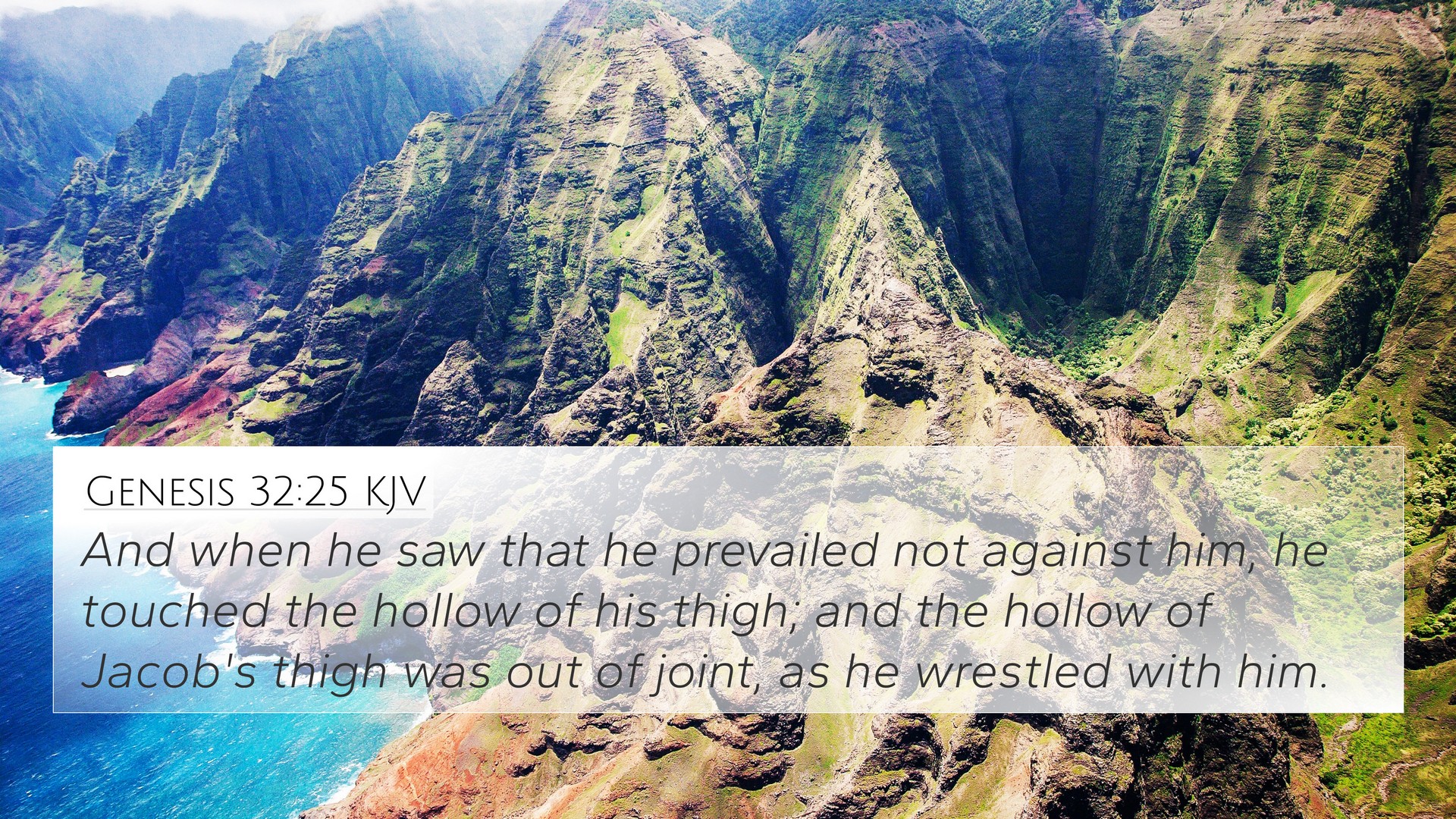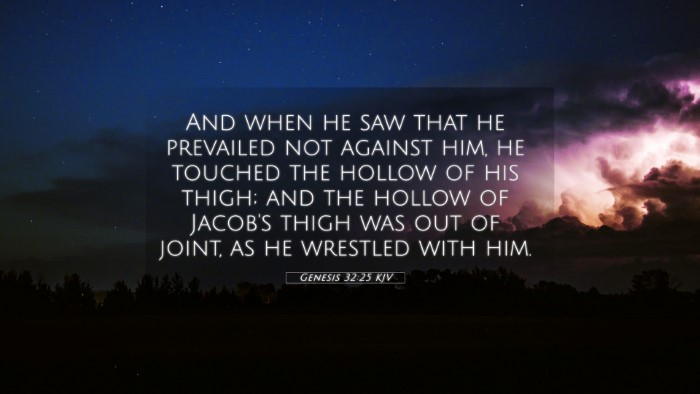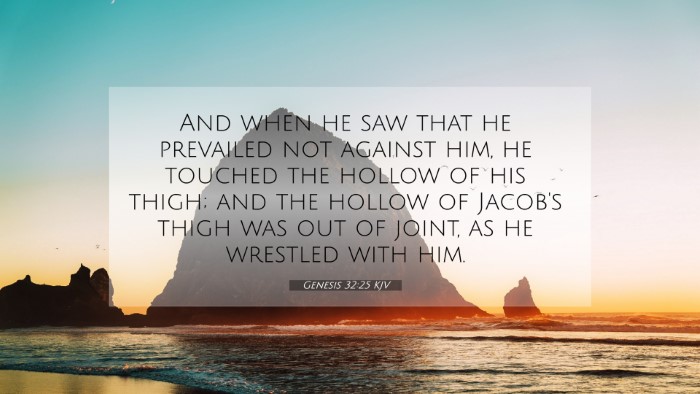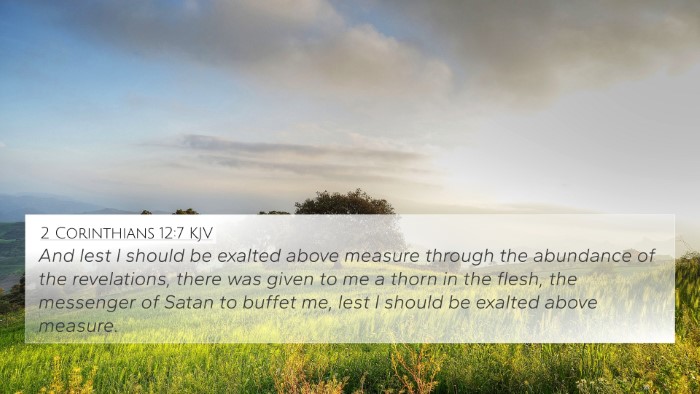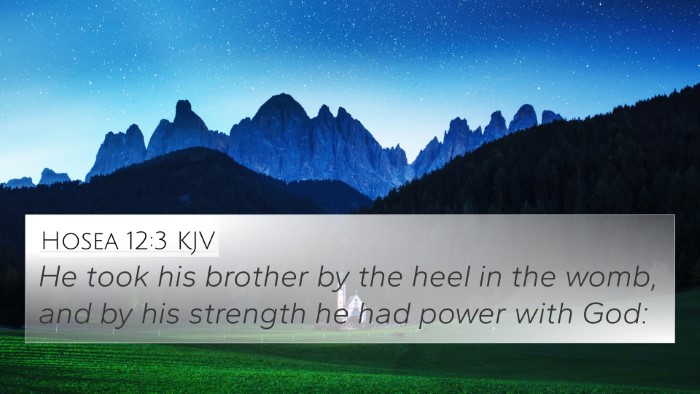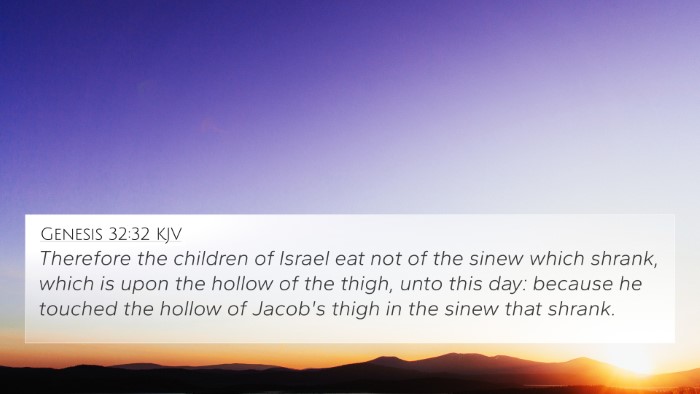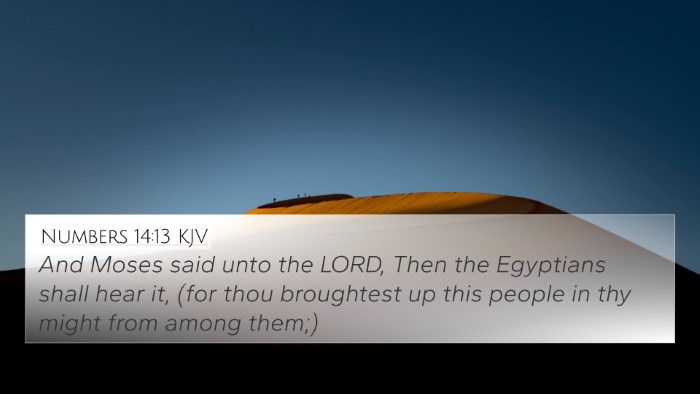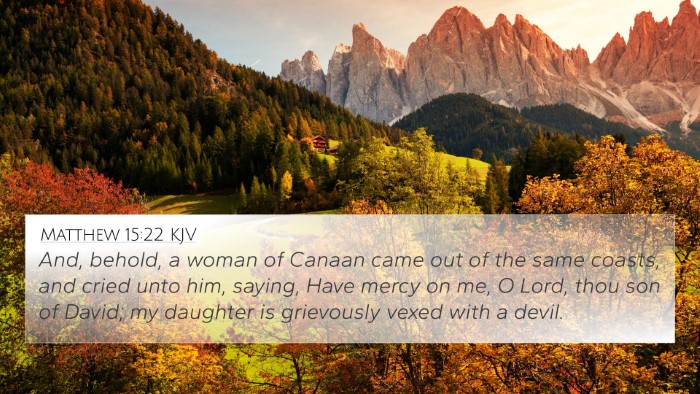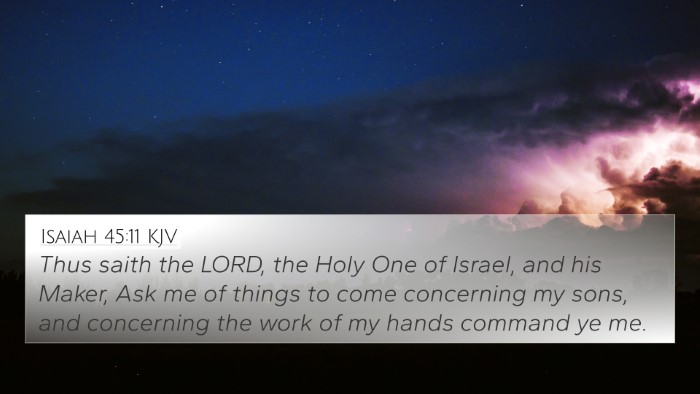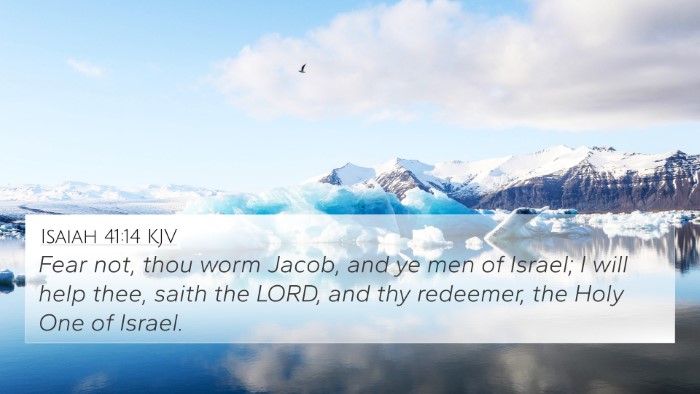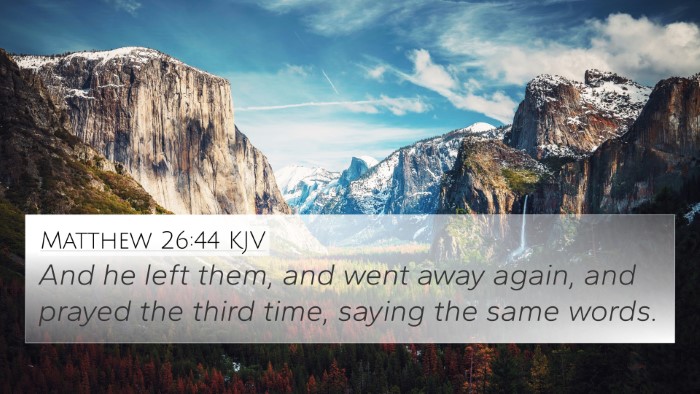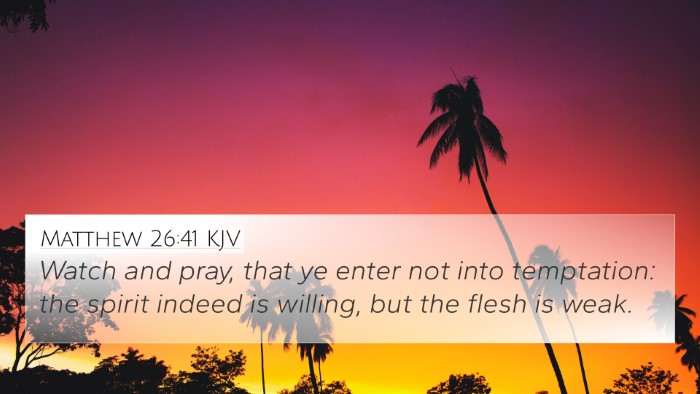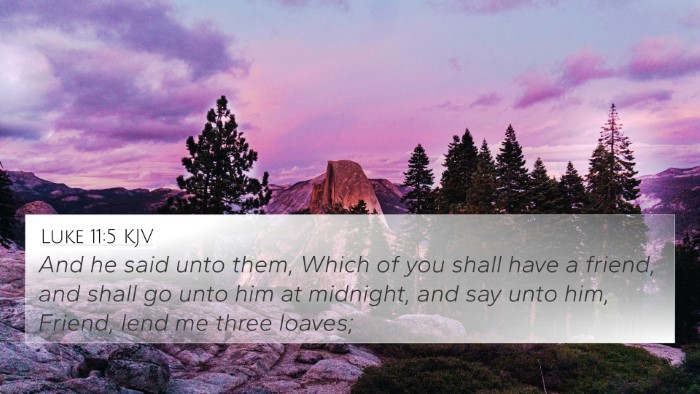Understanding Genesis 32:25 - A Comprehensive Analysis
Genesis 32:25 reads: "And when he saw that he prevailed not against him, he touched the hollow of his thigh; and the hollow of Jacob's thigh was out of joint, as he wrestled with him." This verse depicts a significant moment in Jacob's life as he wrestles with a divine being, representing not only a physical struggle but a profound spiritual encounter. This analysis draws from various public domain commentaries to enhance our understanding.
Contextual Background
The wrestling match occurs on the eve of Jacob's reunion with his brother Esau, highlighting Jacob's inner turmoil and fear (Genesis 32:22-24). It symbolizes the struggle between humanity and divine authority, serving as a reminder of the trials that lead to transformation and blessing.
Analysis from Prominent Commentaries
Matthew Henry's Commentary
Matthew Henry emphasizes the significance of this encounter, noting that Jacob's struggle was not merely for physical dominance but a quest for a blessing. Henry suggests that the action of touching Jacob's thigh symbolizes God's power over human frailty, indicating that ultimate strength comes from submission to the divine will.
Albert Barnes' Notes on the Bible
Albert Barnes elaborates on the implications of the word “wrestled,” indicating it signifies a fierce struggle, likely manifesting both physically and spiritually. Barnes points out that Jacob's displacement of the thigh symbolizes God’s intervention in Jacob’s life, teaching him humility and reliance on divine strength rather than his cunning.
Adam Clarke's Commentary
Adam Clarke interprets the act of injury to Jacob's thigh as a pivotal moment, representing God's authority and Jacob's persistent faith. Clarke stresses that this wrestling (possibly a pre-incarnate Christ) leads to Jacob receiving the name "Israel," marking a significant transformation in his identity and purpose.
Thematic Connections
This narrative invites various thematic Bible verse connections, reflecting the overarching themes of conflict, transformation, and divine interaction. It serves as a vital link in the broader biblical narrative concerning the nature of human struggle and God's providence.
Bible Verse Cross-References
- Hosea 12:3-4 - Discusses Jacob's struggle and the blessings he received as a result.
- Genesis 28:12 - Connects to Jacob’s encounter with God through the dream at Bethel.
- Isaiah 41:10 - Offers assurance of God's presence in times of trouble.
- Philippians 4:13 - Emphasizes strength through Christ, resonating with Jacob's newfound identity.
- 2 Corinthians 12:10 - Discusses strength in weakness, paralleling Jacob's injured condition.
- Romans 8:28 - Indicates how all things work together for good, much like Jacob’s struggles leading to blessing.
- Hebrews 12:1-2 - Encourages perseverance, reminiscent of Jacob's relentless wrestling.
Inter-Biblical Dialogue
The themes present in Genesis 32:25 facilitate robust inter-biblical dialogue about divine encounters and the implications of faith. The narratives around Jacob serve as a backdrop for understanding New Testament teachings on faith, struggle, and divine assistance.
Scriptural Cross-Referencing Methods
For those studying scripture deeply, tools for Bible cross-referencing can be incredibly helpful. Utilizing a Bible concordance or a cross-reference Bible study guide can highlight connections that might not be immediately evident. Understanding the links between Old and New Testament teachings enhances one's comprehension of Biblical themes.
Conclusion
Genesis 32:25 represents a profound moment of personal struggle leading to transformation and divine blessing. By exploring this verse through various public domain commentaries and connecting it with related scriptures, we gain deeper insight into the significance of our struggles in the light of God's ultimate purpose. Whether through Jacob's wrestling match or through our own life trials, we are reminded of the importance of reliance on God's strength.
Further Study
To deepen your understanding of struggle and divine interaction, consider examining the following:
- Comparative study of Pauline epistles to understand how faith is shaped through struggle.
- Examining biblical themes through cross-references to see how they echo across Scripture.
